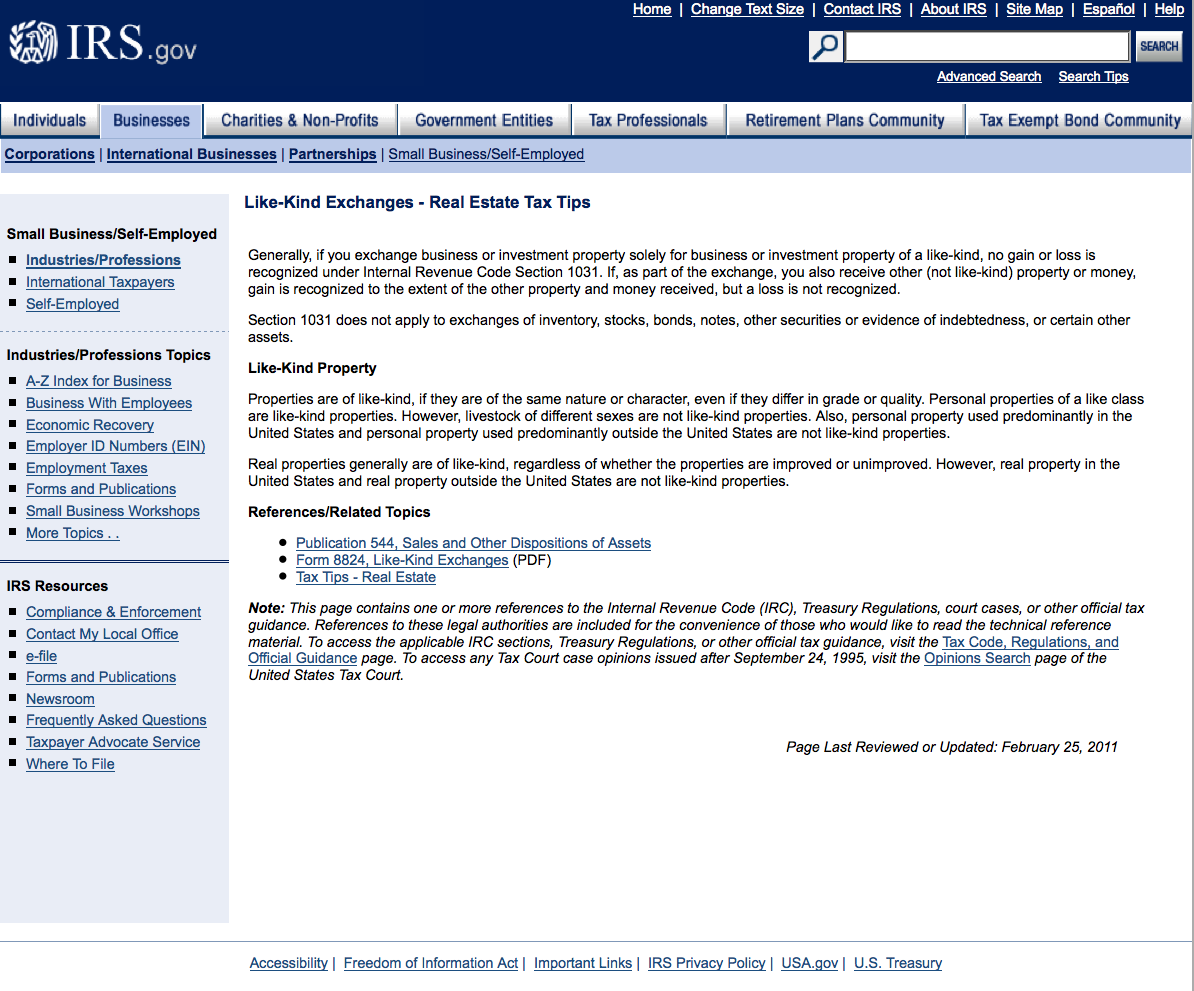While Section 1031 isn’t restricted to real estate, that’s clearly where most of the discussion takes place. Bandied about by realtors, title companies, investors and soccer moms, section 1031, a swap of one business or investment asset for another, is slowly making its way into daily conversation reports JGM Properties, Inc.
As owner-occupiers unearthed emerging neighborhoods in once-underdeveloped areas that exploded, they drove a surge in 1031 exchanges. Many experts and real estate professionals were right when they predicted that the number of 1031 exchanges would increase after the start of 2013, when capital gains increases went into effect. Especially as offers from developers spike to levels they simply cannot resist, owner-occupiers view 1031 as a more cost-efficient exit from a property.
“Section 1031 of the U.S. Internal Revenue Code allows investors to defer capital gains taxes on the exchange of like-kind properties. 1031, or tax-deferred, exchanges hold great advantages for both investors and realtors. The rise in popularity is nowhere more apparent than on the frontlines at the city’s tax and accounting firms,” cited in online research found by JGM.
Tax professionals help investors navigate not only the new capital gains terrain in the event of an outright sale, but also the complex 1031 transactions that more often than not involve several properties, if not entire portfolios. Areas just outside the city are offering additional tax incentives for companies fostering job growth.
“Sometimes the challenge, especially in pockets of really hot markets, is identifying a replacement property,” Mr. McKelvey said. “There’s a lot of stress that takes place in getting that closed within those 180 days from the time the first property is sold to close on a new property (or properties).” His observations are in line with the terms and conditions laid down per IRC Section 1031 (http://www.irs.gov/businesses/small/industries/article/0,,id=98491,00.html) …this article appears to have gone dormant. Below is a screen shot of the article when it was live:
Here’s a link to an updated page at the IRS website related to 1031… (http://www.irs.gov/uac/Like-Kind-Exchanges-Under-IRC-Code-Section-1031)
Matthew Bonney, a partner at CitrinCooperman said, “The last six months in particular have been a hotbed of activity. People who were selling at the end of 2012 were taking their money and running. The bump in the tax rate really started driving 1031.” (http://commercialobserver.com/2014/03/the-1031-exchange-of-a-lifetime/)
“We’re seeing more movement in the outer boroughs. It’s amazing how much has happened right across the river over the last five or 10 years and how much is going on currently… and it looks like it’s going to continue,” said Margolin, Winer & Evens partner John Schmuck.
The advantages that the 1031 exchange offers real estate investors are clearly explained by Mary Monday, an associate broker at RE/MAX Peak Properties here: http://azdailysun.com/business/local/mary-monday-what-can-the-exchange-do-for-real-estate/article_304baa84-a110-11e3-8f3c-0019bb2963f4.html
Cornell sums up the aforementioned 26 U.S. Code § 1031 or ‘Exchange of property held for productive use or investment’ in general, exceptions, requirements, basis, and special rules really well in this article: http://www.law.cornell.edu/uscode/text/26/1031
More resources and guides to 1031 exchanges along with detailed FAQs are available at:
http://www.realtor.org/field-guides/field-guide-to-1031-exchanges
http://www.1031.org/about1031/faq.htm
For the latest news about the 1031 exchange and deferred taxes, what qualifies, gains, time frame, and more, visit http://www.theepochtimes.com/n3/494092-the-1031-exchange-and-deferred-taxes/



I have been very interested in Section 1031 exchanges, particularly as it affects commercial real estate in St Paul. I have a colleague with office space in St Paul for lease for quite some time now. As opposed to selling the property, Section 1031 is an intriguing alternative. The compelling argument is that you have more money available to invest in another property, if you are able to defer the tax. This makes good business sense, since of course growing the overall portfolio is the main objective. It’s no great surprise than many owner-occupiers are seeing this as a viable option. It is, however, important to keep in mind: This is tax-deferred, not tax free. It’s a critical distinction. In addition, there are certain restrictions and difficulties. As you mentioned, identifying a qualifying property, then later the replacement property within 180 days can be stressful. With the right tax advisers, it is certainly something to consider.